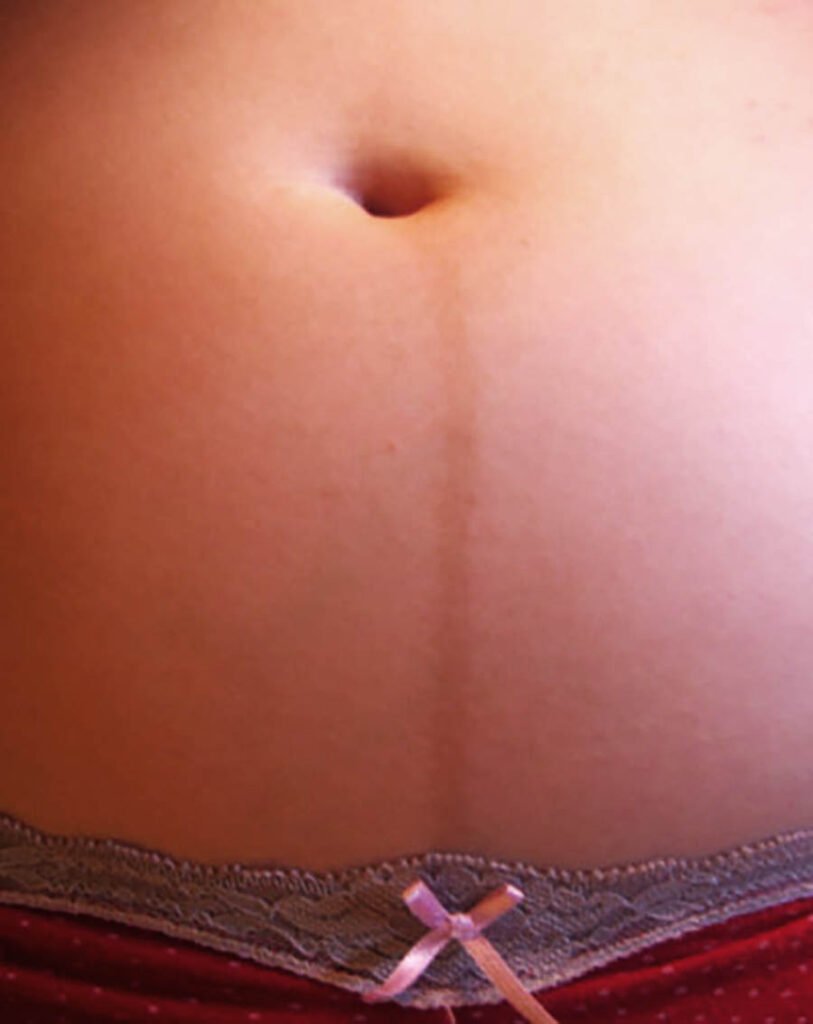
Pregnancy is a journey marked by numerous physical and emotional changes. Among these skin changes during pregnancy are common but often overlooked. From glowing complexions to unexpected acne outbreaks, pregnancy can significantly impact the skin. Understanding these changes is crucial for expectant mothers to ensure proper care and address any concerns that may arise. In this article, we look at the range of skin changes during pregnancy, considering their causes, potential concerns, and effective skincare practices.
Understanding Skin Changes During Pregnancy:
Pregnancy brings about a multitude of hormonal shifts within the body, which can significantly impact the skin. The surge in hormones, particularly Estrogen and Progesterone, can influence the skin’s behaviour in various ways: These hormonal fluctuations, along with other factors such as increased blood volume and metabolic changes, contribute to various skin changes experienced during pregnancy.
- Melasma (Chloasma): Melasma, also known as the “mask of pregnancy,” presents as brown patches on the face, primarily on the cheeks, forehead, and upper lip. This condition is triggered by hormonal changes, particularly increased levels of Estrogen and Progesterone, which stimulate the production of melanin, the pigment responsible for skin colour.
- Stretch Marks (Striae Gravidarum): Stretch marks are one of the most common skin changes during pregnancy, affecting approximately 50-90% of pregnant women. These reddish or purplish streaks typically appear on the abdomen, breasts, thighs, and buttocks due to the stretching of the skin as the body expands to accommodate the growing foetus.
- Linea Nigra: Linea nigra refers to a dark vertical line that appears on the abdomen during pregnancy. This line is caused by hormonal changes and increased melanin production, typically becoming more prominent as pregnancy progresses.
- Acne: Many women experience changes in their skin’s oil production during pregnancy, leading to an increased likelihood of developing acne. Hormonal fluctuations can stimulate the sebaceous glands, resulting in excess oil production and clogged pores.
Potential Concerns:
While most pregnancy-related skin changes are benign and resolve postpartum, some may warrant attention:
- Pruritic Urticarial Papules and Plaques of Pregnancy (PUPPP): This itchy rash typically occurs during the third trimester and may cause discomfort. While harmless, seeking medical advice for relief is advisable.
- Intrahepatic Cholestasis of Pregnancy (ICP): ICP is a liver disorder that can manifest as severe itching, particularly on the hands and feet. It may indicate an increased risk of preterm birth and requires medical attention.
- Pemphigoid Gestationis: This rare autoimmune skin disorder presents as itchy, blistering lesions and requires prompt medical management to prevent complications.
Effective Skincare Practices:
Maintaining a healthy skincare routine can help alleviate discomfort and promote skin health during pregnancy:
- Sun Protection: Minimize sun exposure and use a broad-spectrum sunscreen with SPF 30 or higher to prevent worsening of melasma and other pigmentation changes.
- Gentle Cleansing: Choose mild, fragrance-free cleansers to avoid exacerbating sensitive skin.
- Moisturization: Keep the skin hydrated with hypoallergenic moisturizers to alleviate dryness and itchiness.
- Acne Management If this becomes a problem seek medical advice for safe acne treatment options during pregnancy, as some ingredients may be harmful to the baby.
- Stretch Mark Prevention: While not entirely preventable, keeping the skin moisturized and maintaining a healthy weight can minimize the severity of stretch marks.
- Healthy Lifestyle: Maintaining a balanced diet rich in fruits, vegetables, and lean proteins can support overall skin health during pregnancy. Stay hydrated by drinking plenty of water, get adequate rest, and incorporate regular exercise into your routine to promote circulation and skin elasticity.
Conclusion:
Pregnancy brings about a multitude of changes, including those affecting the skin. While most skin changes during pregnancy are benign and temporary, some may require medical attention. Understanding the causes, potential concerns, and effective skincare practices can empower expectant mothers to navigate these changes with confidence and ensure optimal skin health throughout pregnancy and beyond.
References
- American Academy of Dermatology Association. (2020). Skin changes during pregnancy. https://www.aad.org/public/everyday-care/skin-care-secrets/routine/skin-changes-during-pregnancy
- Murase, J. E., Heller, M. M., Butler, D. C., & Koo, J. Y. (2014). Safety of dermatologic medications in pregnancy and lactation: Part II. Lactation, topical, and systemic therapies. Journal of the American Academy of Dermatology, 70(3), 417.e1-417.e10.
- Soltani-Arabshahi, R., Wong, J. W., & Duffy, K. L. (2009). Pregnancy and skin. Journal of the American Academy of Dermatology, 60(1), 1-22; quiz 23-24.
- Wolverton, S. E. (2019). Comprehensive Dermatologic Drug Therapy (4th ed.). Elsevier.
RECENT POSTS
- The Differences in a Twin Pregnancy: What You Need to Know
- What is the significance of bleeding at different stages of pregnancy?
- How to Cope with Claustrophobia: Effective Strategies for Managing Anxiety
- 50 Great Bible Quotes Relating to Pregnancy
- 10 Tips for Getting a Baby to Sleep
- How Much Sleep Does a Baby Need? A Comprehensive Guide for New Parents
- How to Make Money with ChatGPT: A Comprehensive Guide
- Unexplained Infertility: What Can You Do. Advice and Guidance
- The Benefits of Mindfulness: A Practical Guide to a Healthier and Happier Life
- Constipation During Pregnancy: Causes, Prevention, and Relief
- Pregnancy Myths, Superstitions, and Old Wives’ Tales: Fact or Fiction
- Endometriosis: The Impact on Fertility and Pregnancy
- Disabled and Pregnant: Equality Problems and Solutions
- Meconium Clinical Significance and Warning Signs
- Hypnosis in Pregnancy and Delivery: A Comprehensive Guide
- Pregnancy Tests: What is Amniocentesis? Your Complete Guide.
- Study at Home for a New Job or New Career: Your Path to Success
- What is Advanced Maternal Age?
- Essential Guide to Changes in Pregnancy
- Buying for a New Baby: The Essentials

Leave a Reply